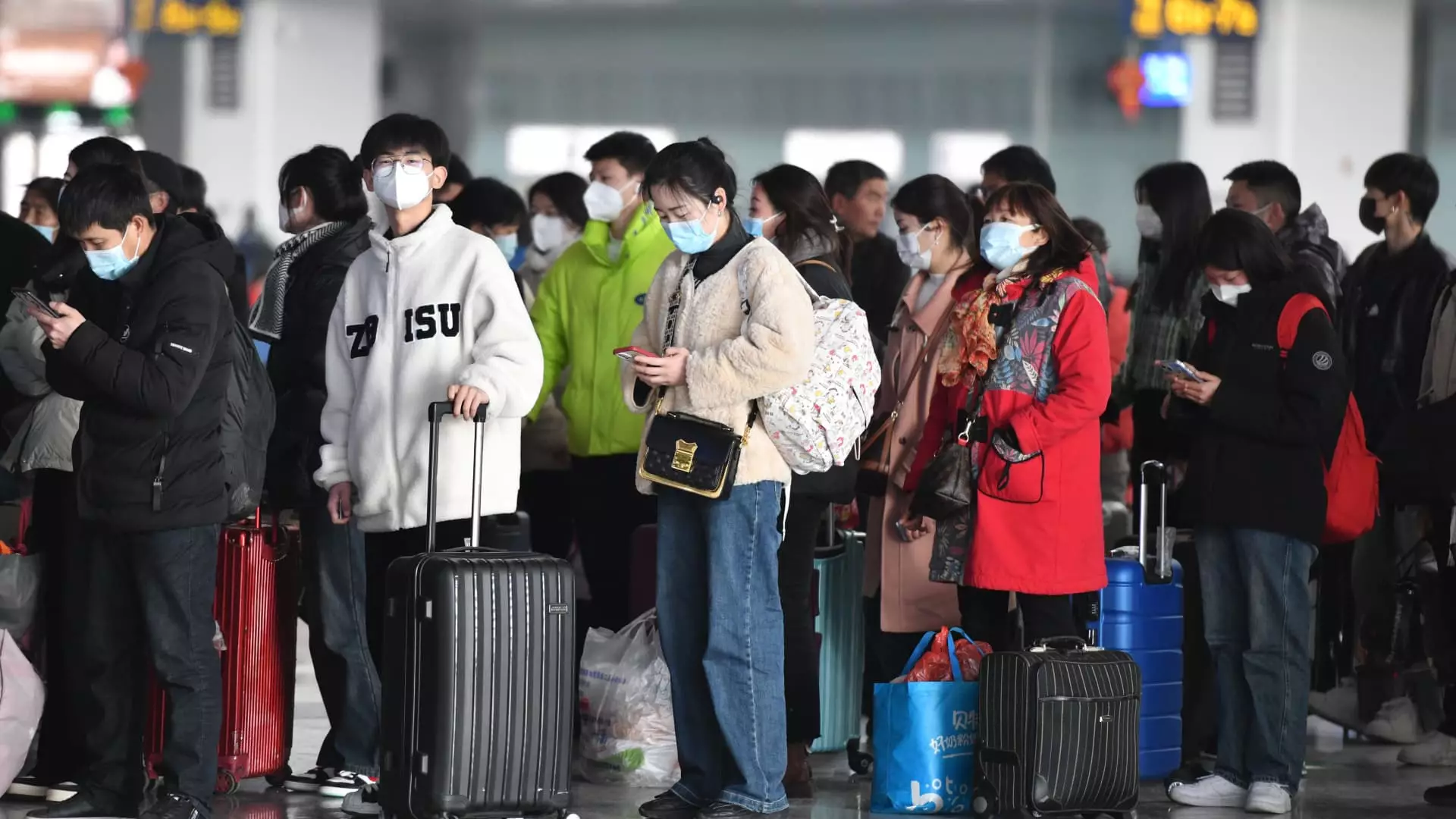Recent trends show that Chinese travelers are increasingly opting for last-minute trips due to growing caution towards spending in the midst of an uncertain economic recovery. This change in behavior has brought forth a “real crisis of consumer confidence” in China, as highlighted by Anthony Caputano, the president and CEO of Marriott International. The shift towards booking hotels as close as three days in advance, the shortest ever seen, reflects a desire to capitalize on last-minute deals and hints at a preference for spontaneity among modern travelers.
The trend towards shorter booking windows poses challenges for businesses, making it difficult to predict and prepare for demand, especially in the wake of China’s slow economic recovery. Patrick Body at the Cheung Kong Graduate School of Business emphasized that the increase in last-minute bookings points to heightened uncertainty and caution with spending among Chinese consumers. This change has made it crucial for companies to adapt to the evolving preferences of customers and the volatile market conditions.
The economic challenges facing China, including a prolonged property crisis and high unemployment rates, have led to Chinese consumers becoming more frugal in their spending across various sectors, including travel. While the desire to go on holiday remains, sentiments regarding income and consumption continue to be subdued. The report by the World Travel & Tourism Council highlighted China as a market with consistently short booking windows, with a significant portion of hotel bookings being made within three days of check-in.
The pricing pressure in the market is reflected in the actions of industry players like Marriott International and domestic travel booking agency Trip.com. Marriott International adjusted its growth forecast for revenue per available room downwards, citing weak demand and pricing trends in China. Similarly, Trip.com reported a decline in average rates for domestic hotels and flights, indicating the impact of changing consumer behavior on the industry.
Despite the challenges posed by economic uncertainty, there are positive indicators in the Chinese travel market. The Ministry of Culture and Tourism stated that the recent Labor Day holiday saw increased domestic trips and tourism spending compared to 2019, although average spending per traveler remained below pre-pandemic levels. Analysts predict a continued trend of short-haul trips to smaller cities, which could drive growth in local economies. The upcoming Golden Week in early October is expected to see a surge in travel demand, surpassing 2019 levels.
The changing landscape of Chinese travelers reflects the broader economic uncertainties facing the country. The shift towards last-minute travel and increased frugality among consumers present both challenges and opportunities for businesses in the travel industry. Adapting to evolving consumer preferences and market conditions will be crucial for companies to navigate the changing dynamics of the Chinese travel market.

